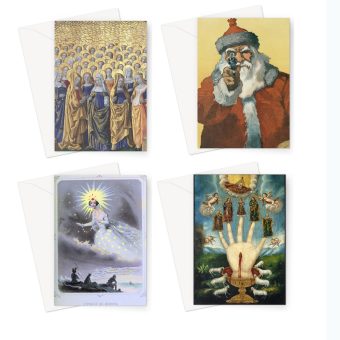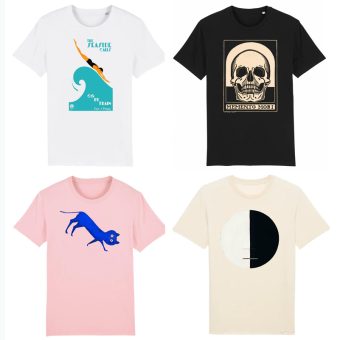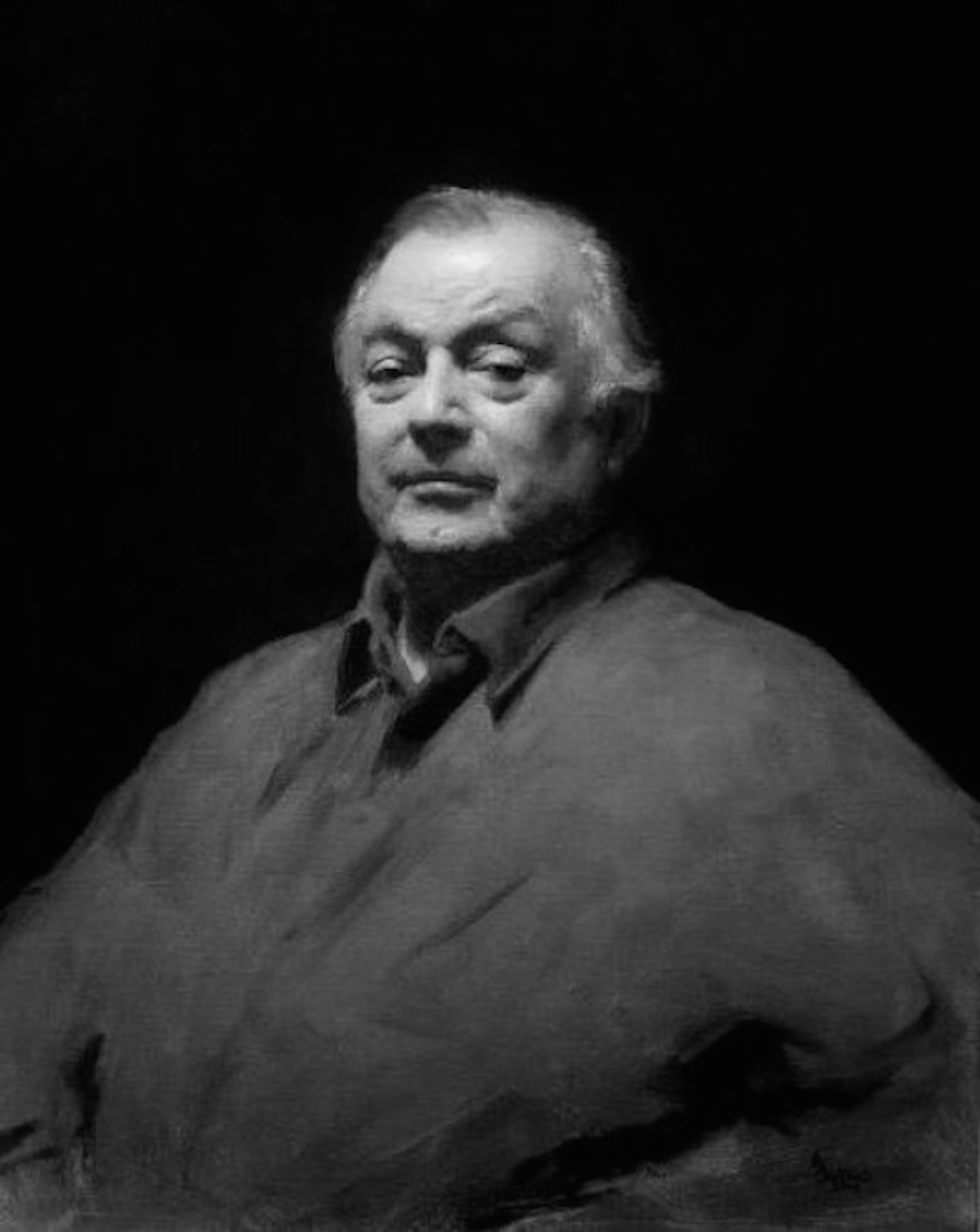
Jim French. Via: SHOWStudio
The American illustrator and photographer Jim French – best known for his pioneering endeavours in the field of homoerotic art – has died at home in Palm Springs at the age of 84.
Appropriations of French’s work – not least by the late Malcolm McLaren, who recast French’s 1969 illustration Longhorns – Dance as the centrepiece of a provocative t-shirt design sold in Sex, the King’s Road boutique he operated with Vivienne Westwood in the mid-1970s – helped spread appreciation in the wider world beyond underground gay culture.
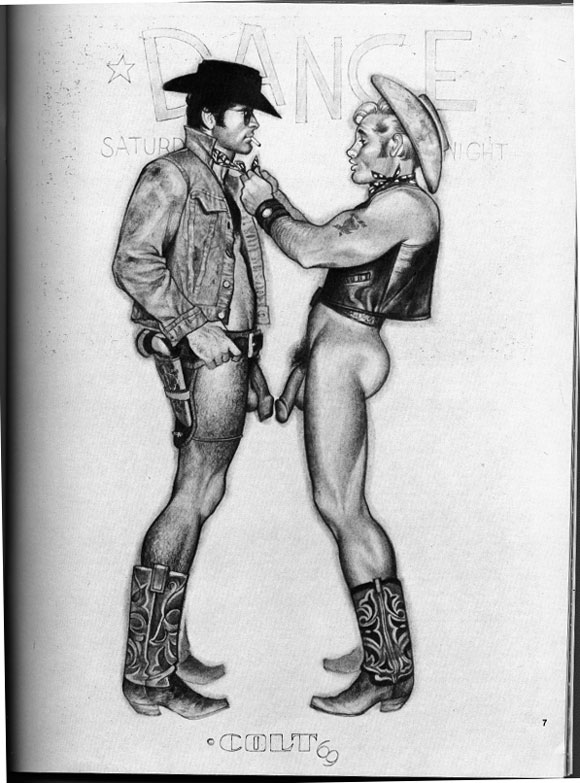
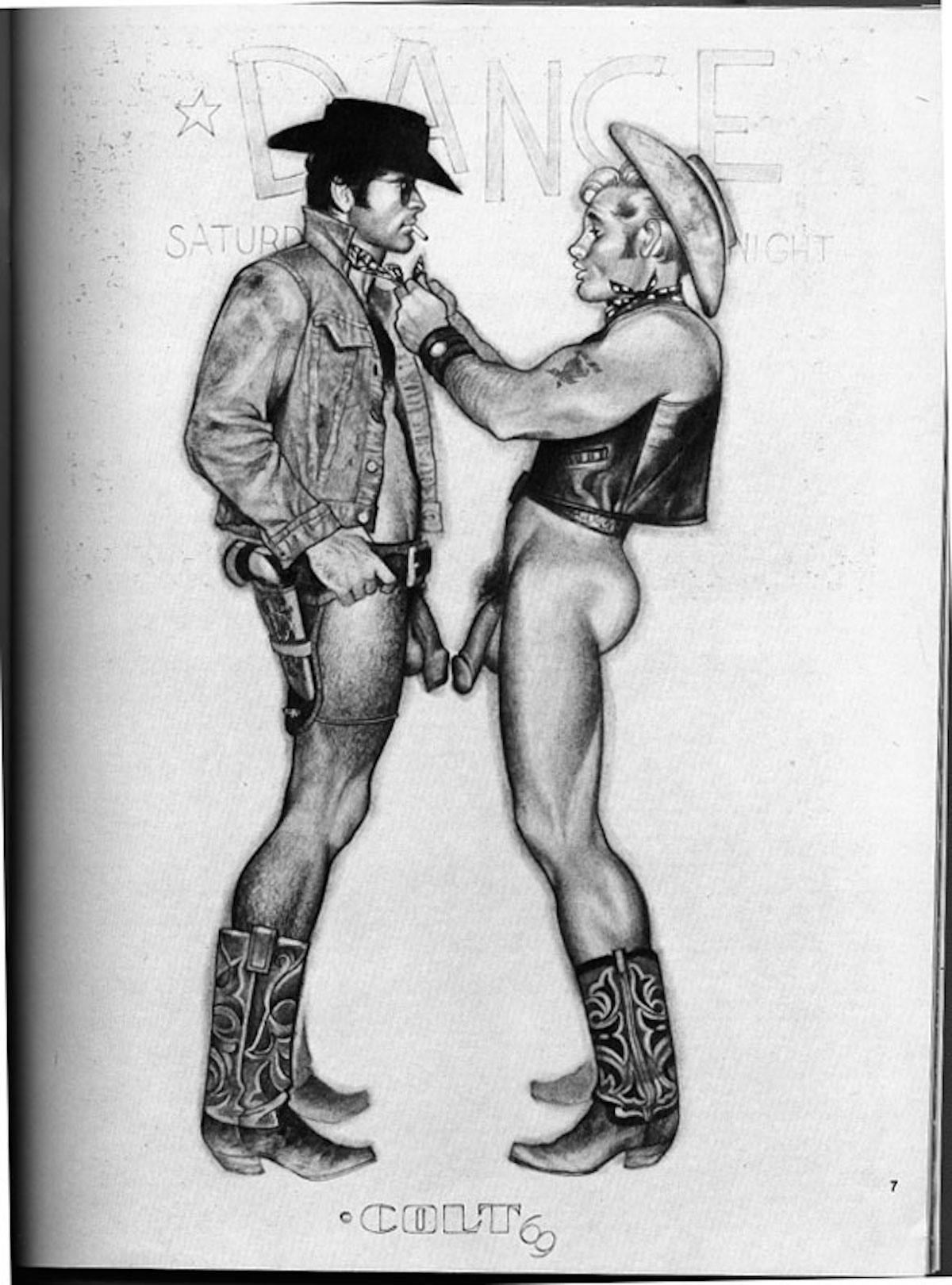
Longhorns – Dance was first sold as one of a pack of six 5″ x 7″ prints in 1969. Reproduced in the book The Colt Album, published in Britain by John S. Barrington in 1973, its appearance in issue 7 of French’s magazine Manpower!, published in 1974, pricked McLaren’s interest when he acquired a copy in New York’s Christopher Street
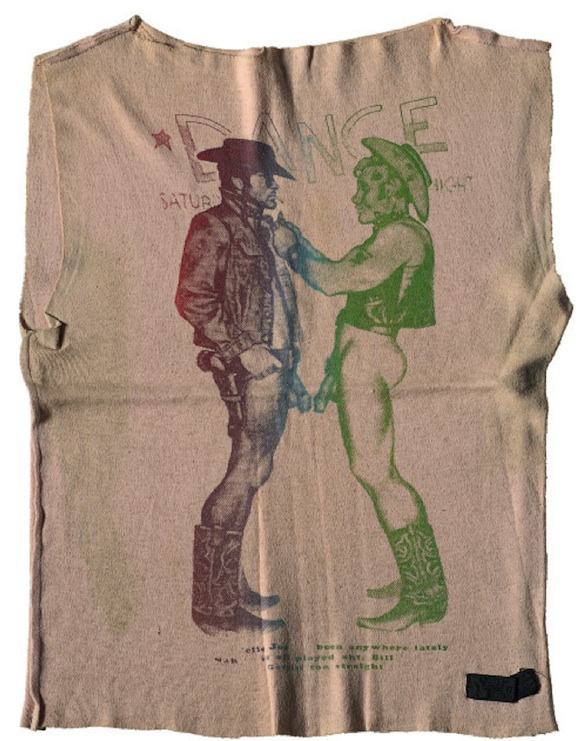
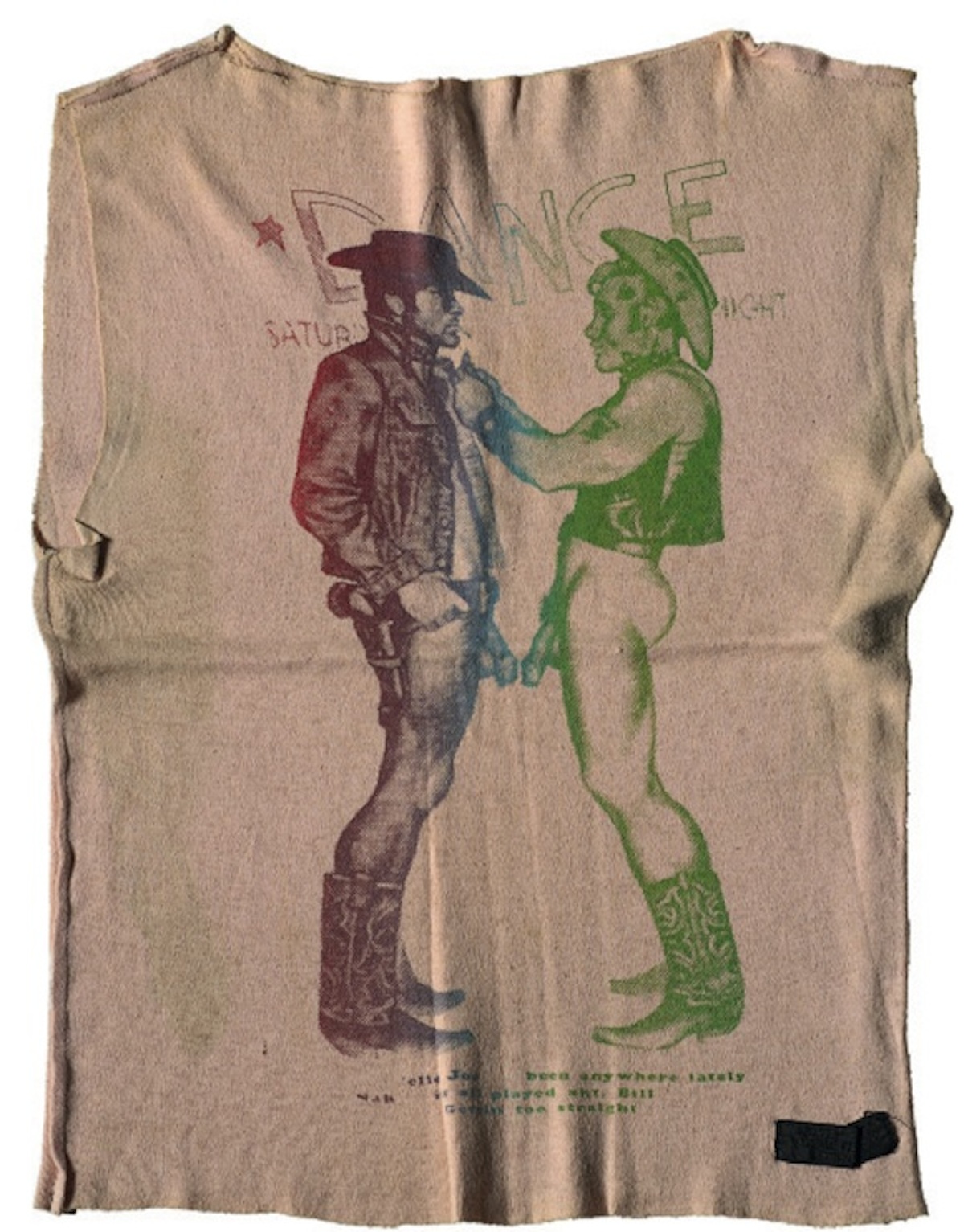
Seditionaries Cowboys t-shirt dating from 1976 sold at auction in 2013
Now it can be seen that French and McLaren – who never met – shared a common aim: to blow the lid off repression via the open celebration of sexuality. The cultural provocateur found the drawing in French’s 1974 magazine Manpower!, independently produced under the Colt Studio marque (French variously used the pseudonyms “Arion”, “Luger” and “Colt” at a time when identification with the publishing and distribution of such material resulted in harassment and jail sentences).
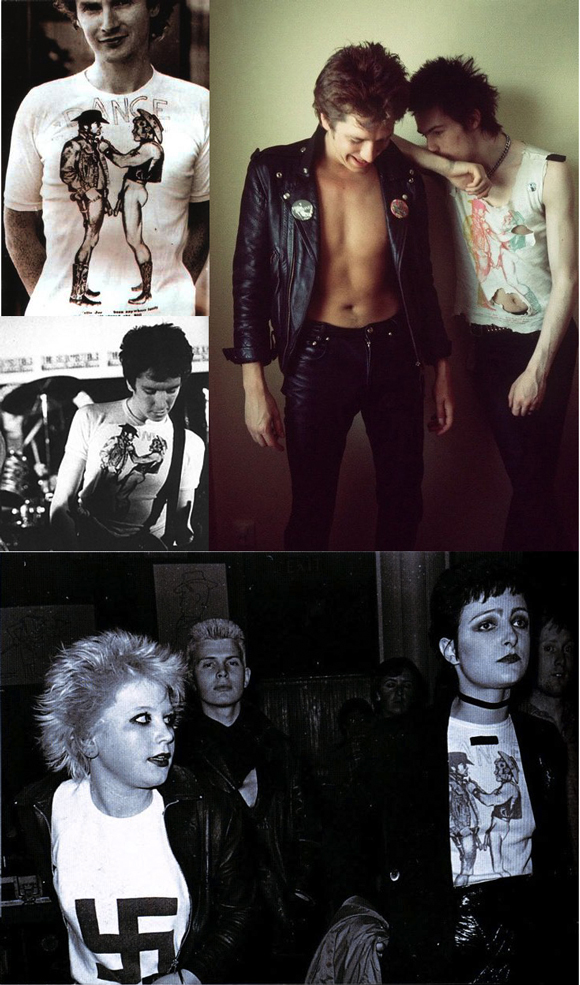
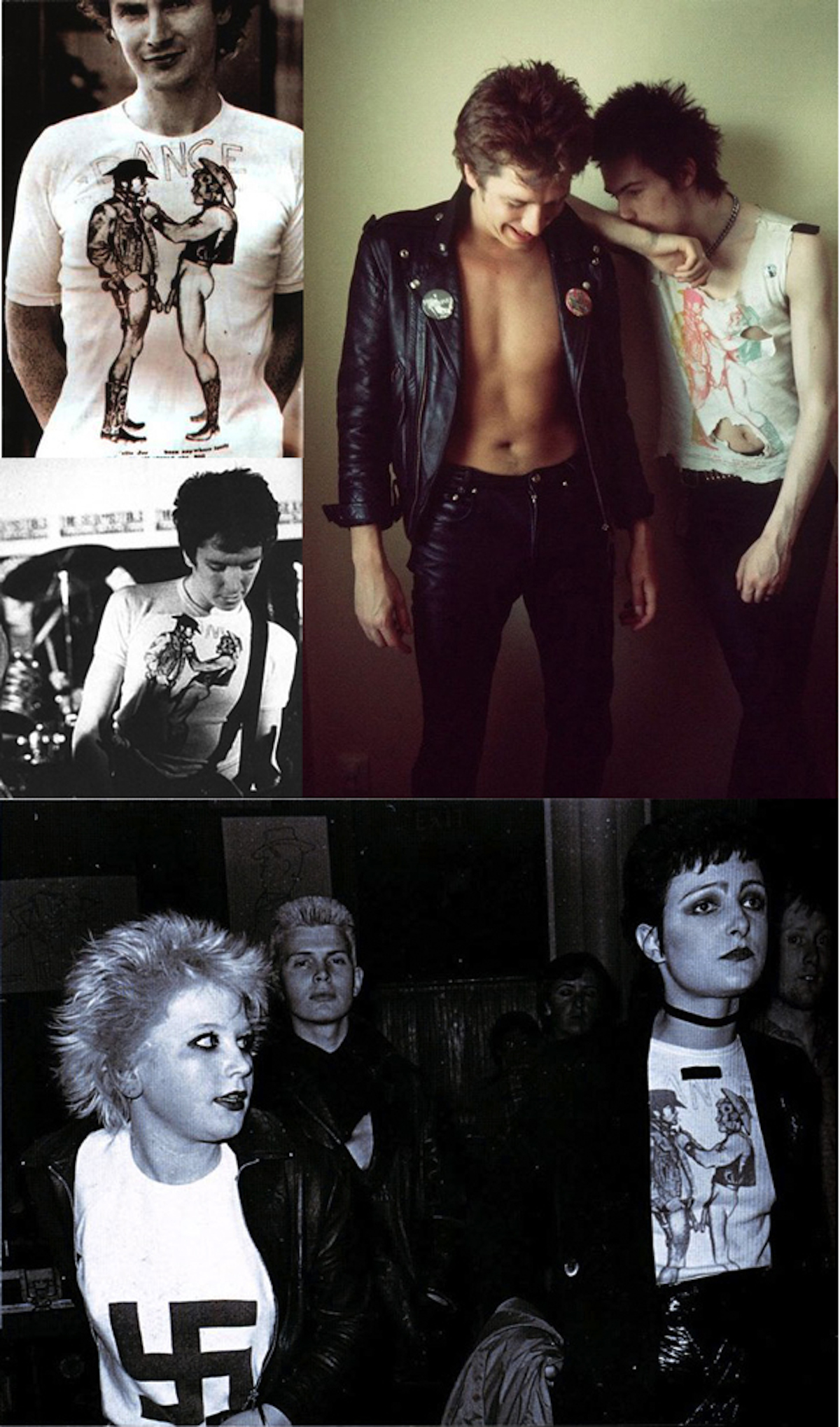
Wearing their Cowboys (clockwise from top left): McLaren 1975, Sid Vicious 1977, Siouxsie 1976, Steve Jones 1975. Photographs: Bob Gruen; Dennis Morris; Ray Stevenson; Mick Rock.
Attracted by the illustration’s disruptive impact and understanding that it fitted into the concepts projected by his store Sex, McLaren juxtaposed the image with an imagined exchange between the cowpokes reflecting the alienation and boredom he detected in British society; when worn by members of the Sex Pistols, the “Cowboys shirt”, as it became known, was one of the key provocations in Punk’s arsenal of visual expression.
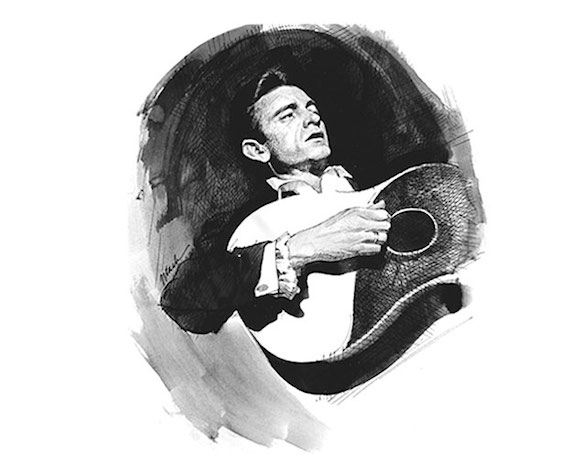
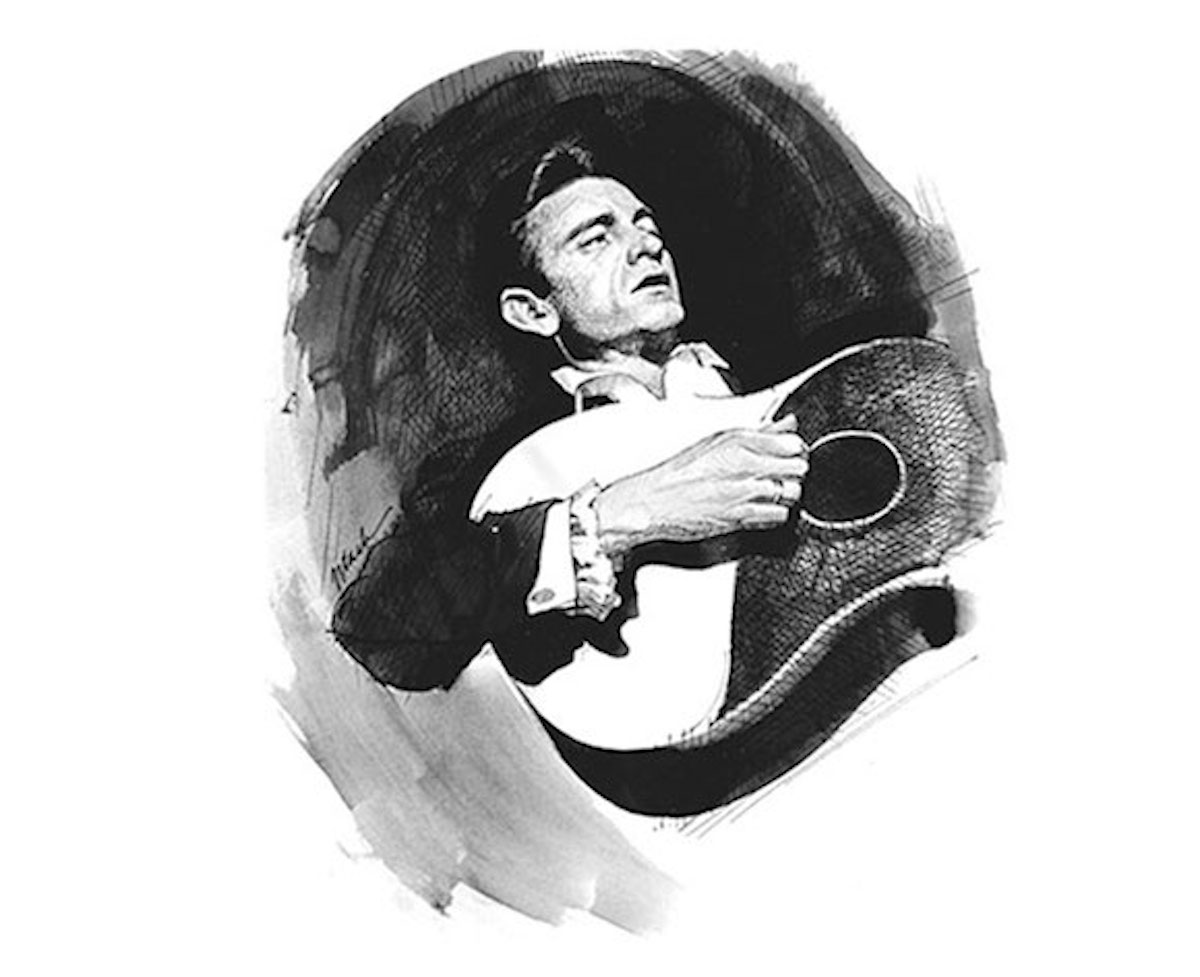
Johnny Cash for Columbia Record Club, Jim French, early 1960s
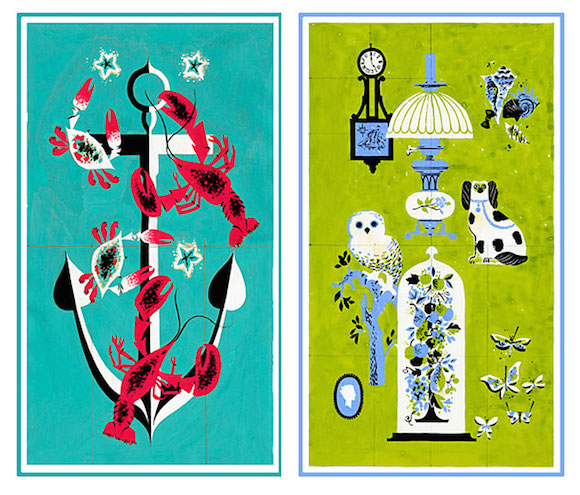
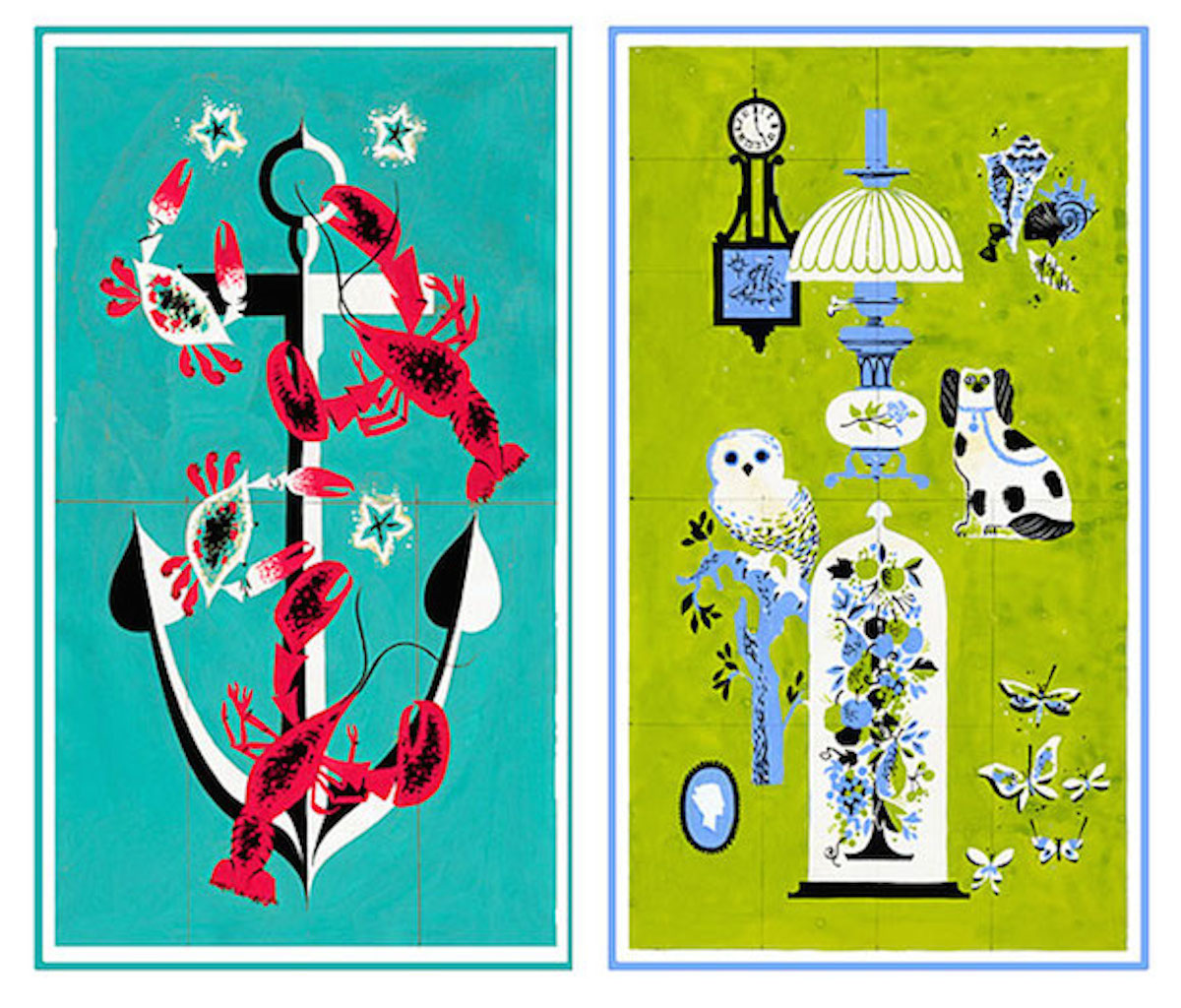
Textile designs for Tammis Keefe, Jim French, early 1960s
I found French salty and good-humoured when I interviewed him in 2015. He told me how, like Andy Warhol, he was formally trained as a commercial artist (at the Philadelphia Museum School of Art) and made his bones as a fashion illustrator; Warhol’s 1950s output included record sleeve design, as did French’s. His main client was Columbia Records, for whom he produced delicately-realised portraits of such stars as Cash, Sinatra, Mathis and Streisand, as well as textile patterns for the scarf and handkerchief manufacturer Tammis Keefe.
In 1966, French opened mail order company Luger with partner Lou Thomas to circulate reproductions of the male erotica he had produced since his time in the army. In the years before the liberalising of laws banning homosexuality by many states, this was a fraught occupation and French had to run the gauntlet, using small independent print presses and repro studios whose activities were regularly targeted by the authorities on the grounds of obscenity.
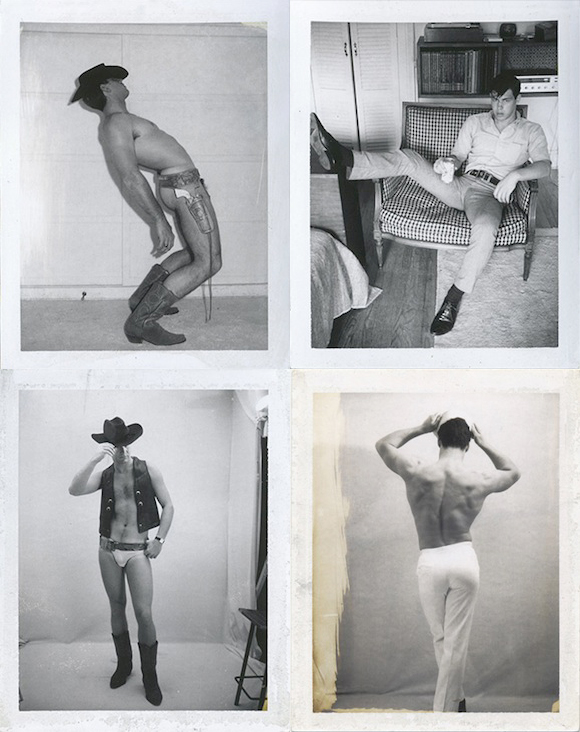
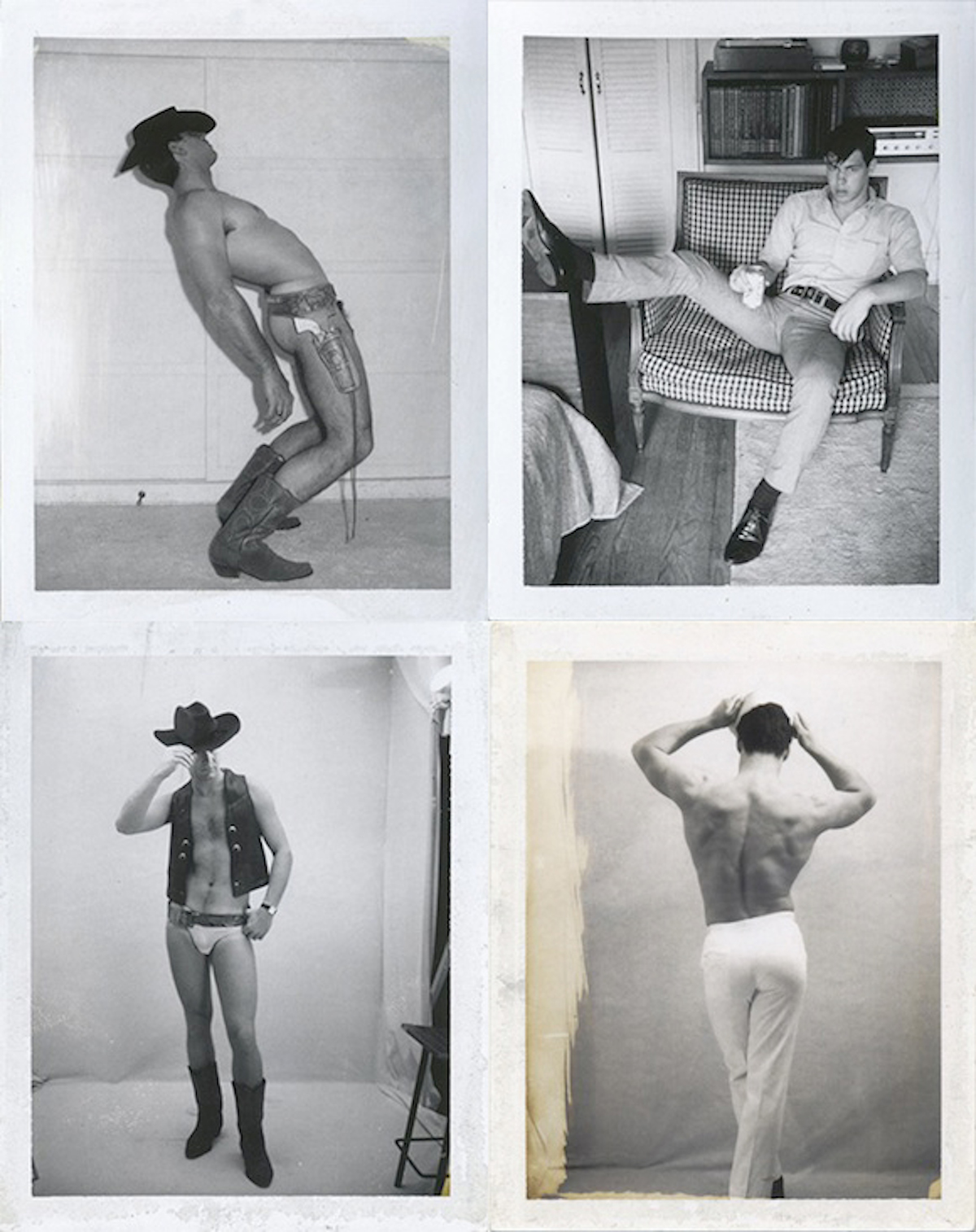
Polaroid studies, Jim French, late 60s, from Tinker, Tailor, Soldier, Sailor at ClampArt, New York, 2013
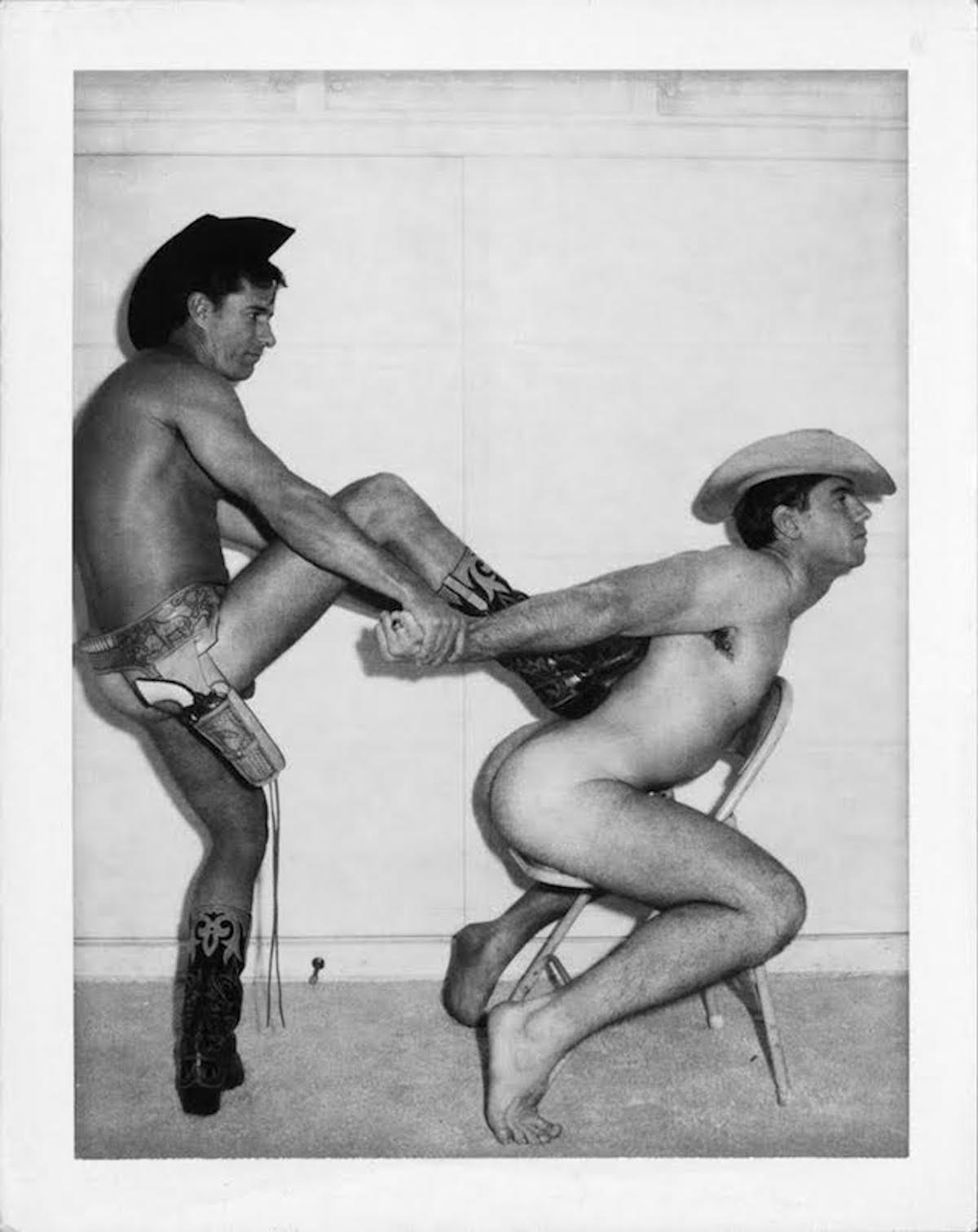
Jim French, “Untitled (Cowboys),” (c. 1967-9) Vintage Polaroid print (© Jim French. Courtesy of ClampArt and Antinous Press)
“There were relatively few people doing what I was trying to do: celebrate the magnificence of the naked male body,” said French, whose hyper-masculine soldiers, cowboys and bikers drew an eager audience. Using the name Rip Colt, he founded Colt Studio in 1967, producing highly detailed drawings for books, magazines and calendars.
When the Polaroid camera was introduced, French embraced the new technology, not least because it cut out the necessity of having to deal with processors. He started portraying male models for research studies, and their edgy air – as if stills from a Kenneth Anger movie – built a new market, exuding counter-cultural cool which in turn influenced Robert Mapplethorpe, Herb Ritts and Bruce Weber.
In conversation, French was polite about about not only McLaren’s appropriation but also the use of one of his photographs by another admirer, Morrissey, as the front cover of The Smiths’ single Hand In Glove.
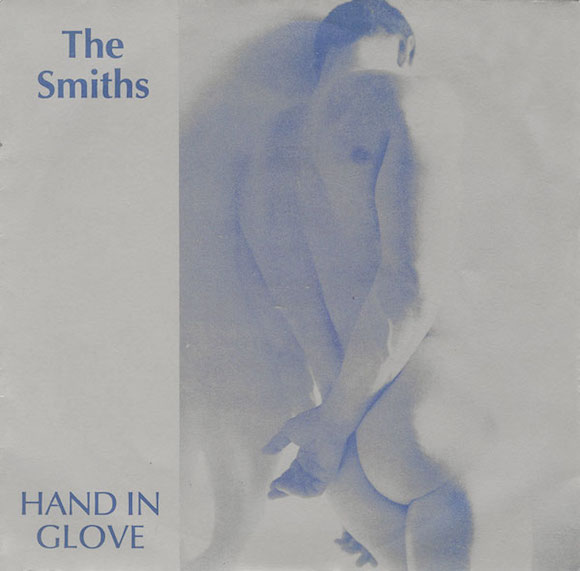

French study on the front of single sleeve for The Smiths’ 1983 single, taken by Morrissey from Margaret Walters’ 1978 compendium The Male Nude
French’s archivist Nat Gozzano told me that privately French was “decidedly unimpressed with modern cultural movements like Punk and doesn’t really see the significance. His work has been far more influential than people realise. The breadth is astonishing”.
Nevertheless French struggled for decades for artistic recognition on the margins of society as arguably the world’s pre-eminent practitioner in his field outside of the much more widely applauded Tom Of Finland (who has often been miscredited for having drawn the Cowboys). After I published two pieces about French in 2013, British photographer Nick Knight staged an exhibition of his prints and Polaroids at London’s SHOWStudio gallery.
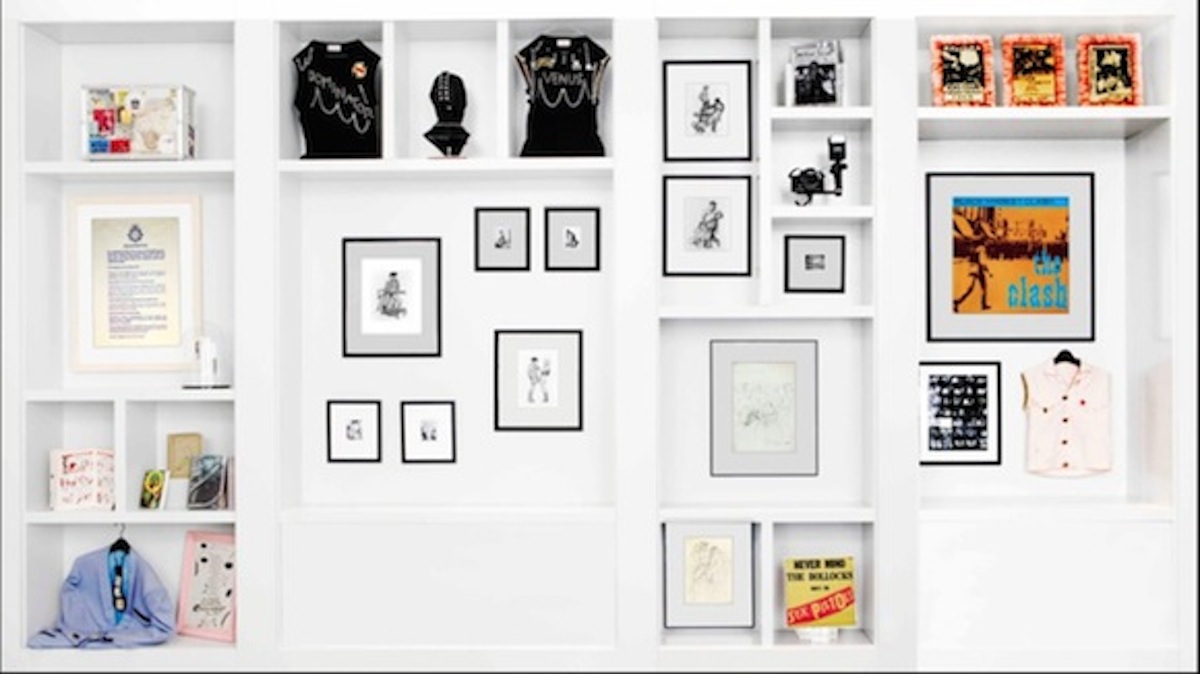
Jim French prints in Punk @ SHOWStudio, London, 2013/
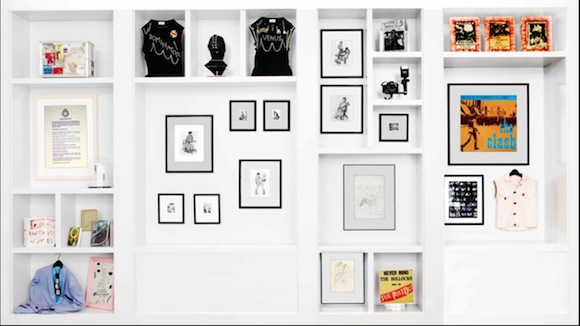
Subsequently, 2015 witnessed the publication of coffee table tome The Jim French Diaries and exhibitions in New York and Palm Springs. I asked French why he thought his work was finally receiving attention.
“Because it’s so damn good!” he barked. “There were only ever a handful of decent illustrators producing gay art back then. A lot of their stuff looks like they did the art with their right hand while they were jacking off with their left. Let me tell you, that doesn’t give you a pure line!”
Joking aside, French saw his greatest fight as persuading the public and critics that the point of his work was not just to present brazen sexuality, but was sceptical at my suggestion that efforts such as his have contributed to the eradication of prurience in the West.
“The world is getting more sophisticated all the time, but we got a long way to go,” French told me. “I mean, I’m still waiting for a woman to show her nipples in a mainstream American publication…”
Jim French, born July 14, 1932; died June 16, 2017
Would you like to support Flashbak?
Please consider making a donation to our site. We don't want to rely on ads to bring you the best of visual culture. You can also support us by signing up to our Mailing List. And you can also follow us on Facebook, Instagram and Twitter. For great art and culture delivered to your door, visit our shop.
